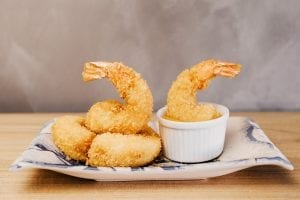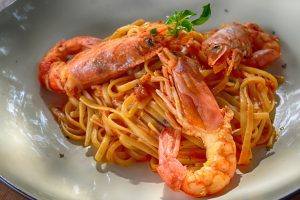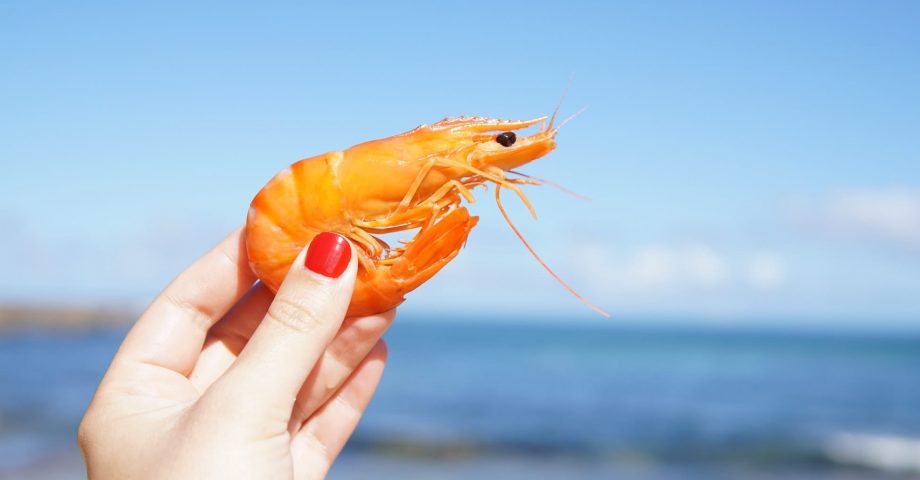Shrimp is one of the most common types of shellfish consumed all around the world. They’re nutritious and rich in protein, but their cholesterol content has been called into question many times. Here are some fun facts about shrimps and their nutrition which may clear any doubts you have…
1. What’s the damage?
85 grams of boiled or steamed shrimp contains 76 calories, 1 gram of fat, 600 grams of sodium, 15 grams of protein, and 1 gram of carbohydrates.
2. Cooking can change a lot.
When evaluating the calorie and fat content of the shrimp, the methods of cooking them is crucial. The calories remain low when you boil or steam the shellfish. However, fried or breaded shrimps are more popular among people and this changes the nutrition profile significantly. For example, when you eat shrimp that has been floured, breaded or battered and fried in oil, the calorie content increases to 250.

3. There’s stacks of protein in shrimp.
Shrimps are mainly made up of protein (in addition to their water content). Each jumbo shrimp provides about 3 grams of protein.
4. Need a healthy heart boost?
The omega 3 fatty acids found in your shrimps can improve your heart’s health.
5. A diet of shrimp could help turn back the clock.
Shrimps contain a carotenoid antioxidant known as astaxanthin. This antioxidant helps maintain eyesight and reduces the signs of aging.
6. Don’t believe everything you read.
Although shrimps are high in cholesterol, their bad reputation is unwarranted. This is because dietary cholesterol has very small effects on blood cholesterol. 300 mg of cholesterol is recommended per day. Although shrimps contain 161 mg in a four-ounce serving, it is minimal compared to the majority of red meats and processed food.

7. Here’s the key.
When it comes to heart health, it is far more crucial to limit your intake of saturated fat than dietary cholesterol.
8. What shrimps eat, you eat too!
The food that shrimps consume and whether they are farmed or wild, as with all food animals, affect their nutritional value.
9. Breaking it all down…
100 grams of shrimp contains 54% of your recommended daily allowance (RDA) of selenium.
100 grams of shrimp contains 5% of your RDA of calcium, 13% of iron, 9% of magnesium, 20% of phosphorus, 5% of potassium and 7% of zinc.

FAQs about Shrimp Nutrition
Is shrimp healthier than chicken?
It’s certainly on par! It’s rich in vitamin D and vitamin Bs. However, many people are allergic to shrimp and other seafood.
Is shrimp good for weight loss?
It can be! Thanks to its healthy balance in protein and calories, a diet of shrimp can easily boost a weight loss plan.
Is shrimp good for a keto diet?
Yes, there’s no harm in eating shrimp on a keto diet - it’s stacked with protein as well as a variety of healthy nutrients elsewhere.
Do you know any shrimp nutrition facts? Share them in the comments below!










